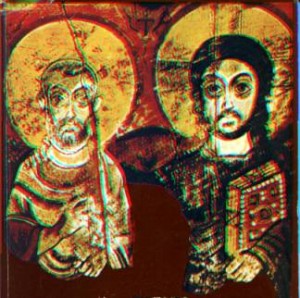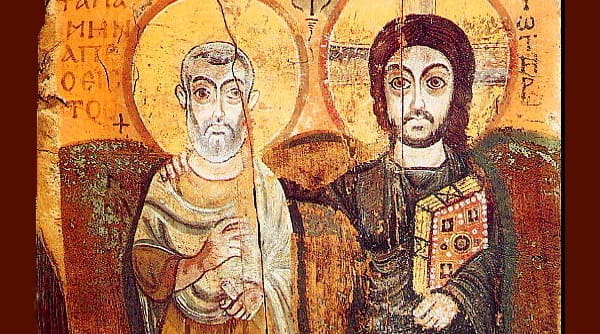 Dear Father John, I have heard that most saints have had spiritual directors in their lives. Why would a saint need spiritual direction? Is there something about the human condition that does not allow spiritual progress without this kind of assistance?
Dear Father John, I have heard that most saints have had spiritual directors in their lives. Why would a saint need spiritual direction? Is there something about the human condition that does not allow spiritual progress without this kind of assistance?
Let me answer your question with a question: Why did God choose to save us from sin through the incarnation of his eternal Son? Is there something about the human condition that required God to become man in order to redeem us?
You can see that your question about why saints need spiritual direction touches the very core of Christian theology. God is all-powerful, all-loving, and all-knowing. As a result, he could have chosen any number of ways to redeem our fallen world. He was not constricted by some higher law, outside of himself, that forced him to send the Second Person of the Holy Trinity among us through the incarnation. Rather, he chose to do it that way. He chose to administer the redemption through a mediator who was fully human (Jesus Christ). And having chosen that path, he was consistent with that choice; the Church is an extension of this same method of redemption. Through the sacraments and Sacred Scripture, God continues to communicate his grace to us through material realities; he saves and sanctifies us in a manner that respects our human nature, by which we are a unity of spirit and matter (in philosophical terms, that means the human person is a spiritual soul informing a material body).
Granted that choice, the strange phenomenon of saints needing spiritual directors makes more sense. It’s God continuing to reach out to us through a language that we can easily understand, through contact with another human being. And you are right, every saint received their faith and their formation in the faith from God, through the mediation of others. Certainly, they made excellent use of what others were teaching and showing them, unlike so many mediocre Christians, but still, they needed a spiritual director, a spiritual father, a confessor, a mentor… This is how God has chosen to work. As St Augustine put it: “he willed to create us without our assistance, but he wills to save us with our assistance.”
One particularly eloquent example of this divine methodology is found among the women mystics. St. Faustina and St. Margaret Mary, for example, were both privileged with extraordinary visions in which Our Lord himself appeared and spoke to them, conversationally, many times. He entrusted to each of them a difficult mission, and didn’t spare them a healthy share of his cross. Part of their cross consisted in suffering misunderstanding and poor guidance at the hand of inept superiors or confessors. Jesus promised each of them that he would send a worthy confessor (spiritual director) who would be his faithful instrument in guiding them. But why? If the Lord was already communicating directly with these chosen souls, why did he make their spiritual advance depend so heavily on other guidance that would come from a merely human source? These are stark cases of God showing that he chooses to work in our souls in ways appropriate to our human nature.
The beauty of this divine pedagogy is often more apparent when we look at it from a distance than when we are in the middle of it. We have all been irritated, at times, by the all-too-human failings and foibles of priests, confessors, and spiritual directors. Sometimes their imperfections are so glaring that we almost completely forget that God has purposely chosen to work through flawed instruments, to mediate his perfect, divine grace through imperfect, human messengers.
Much theological reflection has gone into probing God’s possible motives for doing things this way. And there is still plenty of room for more. It may be a good topic of meditation for you, and if you like the idea, I would suggest starting with one of the Bible’s most famous verses, in which God himself tells us about his motives: “For God so loved the world that he sent his only begotten Son, so that whoever believes in him should not perish, but have eternal life” (John 3:16).
Yours in Christ, Father John Bartunek, LC
+
Art for this post on why a saint would need spiritual direction: Christ and Saint Mina [or Menas], iconographer unknown, 6th-century icon from Bawit, Egypt, PD-US author’s life plus 70 years or less, Wikimedia Commons.


